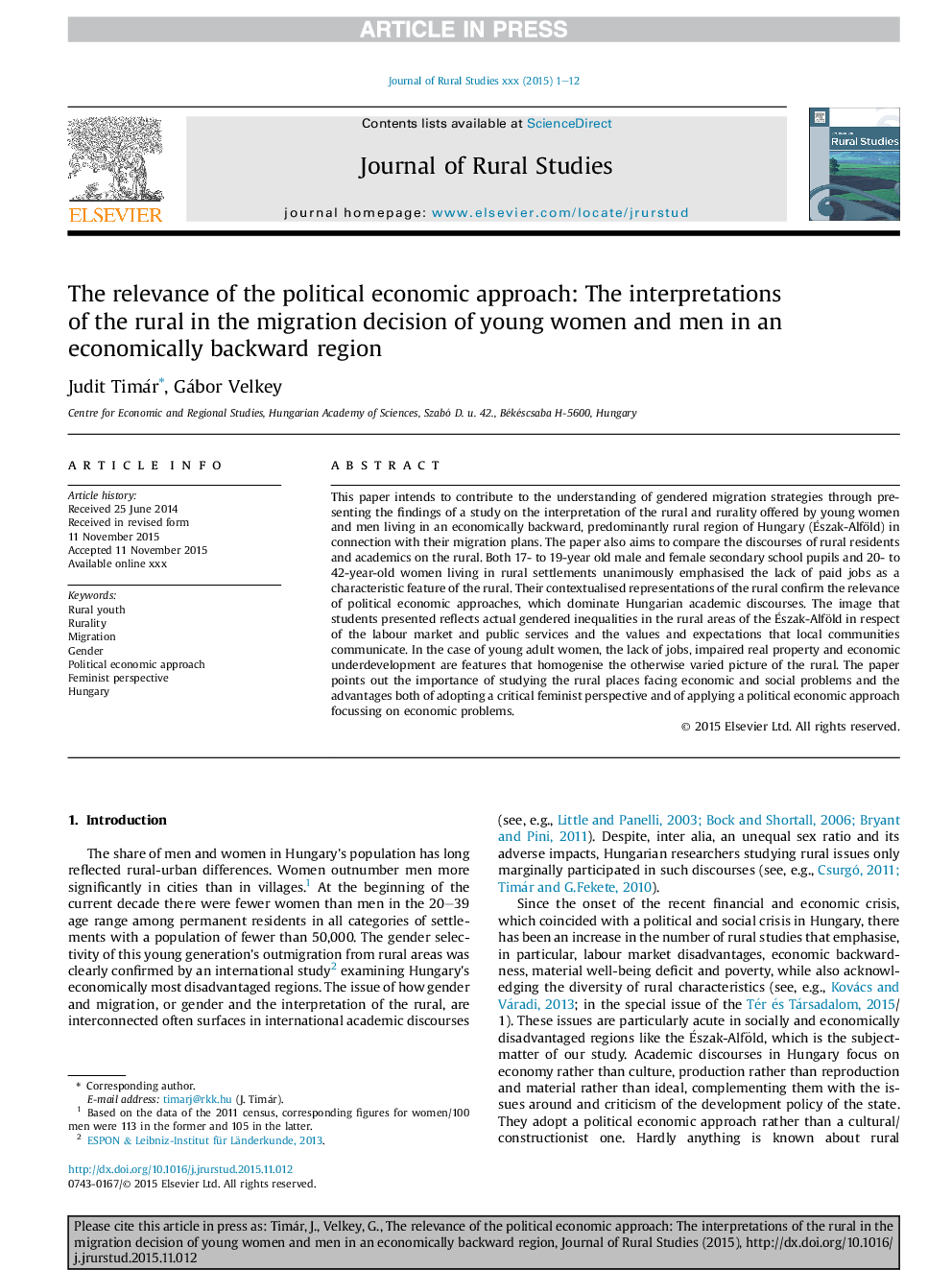| Article ID | Journal | Published Year | Pages | File Type |
|---|---|---|---|---|
| 6545503 | Journal of Rural Studies | 2016 | 12 Pages |
Abstract
This paper intends to contribute to the understanding of gendered migration strategies through presenting the findings of a study on the interpretation of the rural and rurality offered by young women and men living in an economically backward, predominantly rural region of Hungary (Ãszak-Alföld) in connection with their migration plans. The paper also aims to compare the discourses of rural residents and academics on the rural. Both 17- to 19-year old male and female secondary school pupils and 20- to 42-year-old women living in rural settlements unanimously emphasised the lack of paid jobs as a characteristic feature of the rural. Their contextualised representations of the rural confirm the relevance of political economic approaches, which dominate Hungarian academic discourses. The image that students presented reflects actual gendered inequalities in the rural areas of the Ãszak-Alföld in respect of the labour market and public services and the values and expectations that local communities communicate. In the case of young adult women, the lack of jobs, impaired real property and economic underdevelopment are features that homogenise the otherwise varied picture of the rural. The paper points out the importance of studying the rural places facing economic and social problems and the advantages both of adopting a critical feminist perspective and of applying a political economic approach focussing on economic problems.
Related Topics
Life Sciences
Agricultural and Biological Sciences
Forestry
Authors
Judit Timár, Gábor Velkey,
